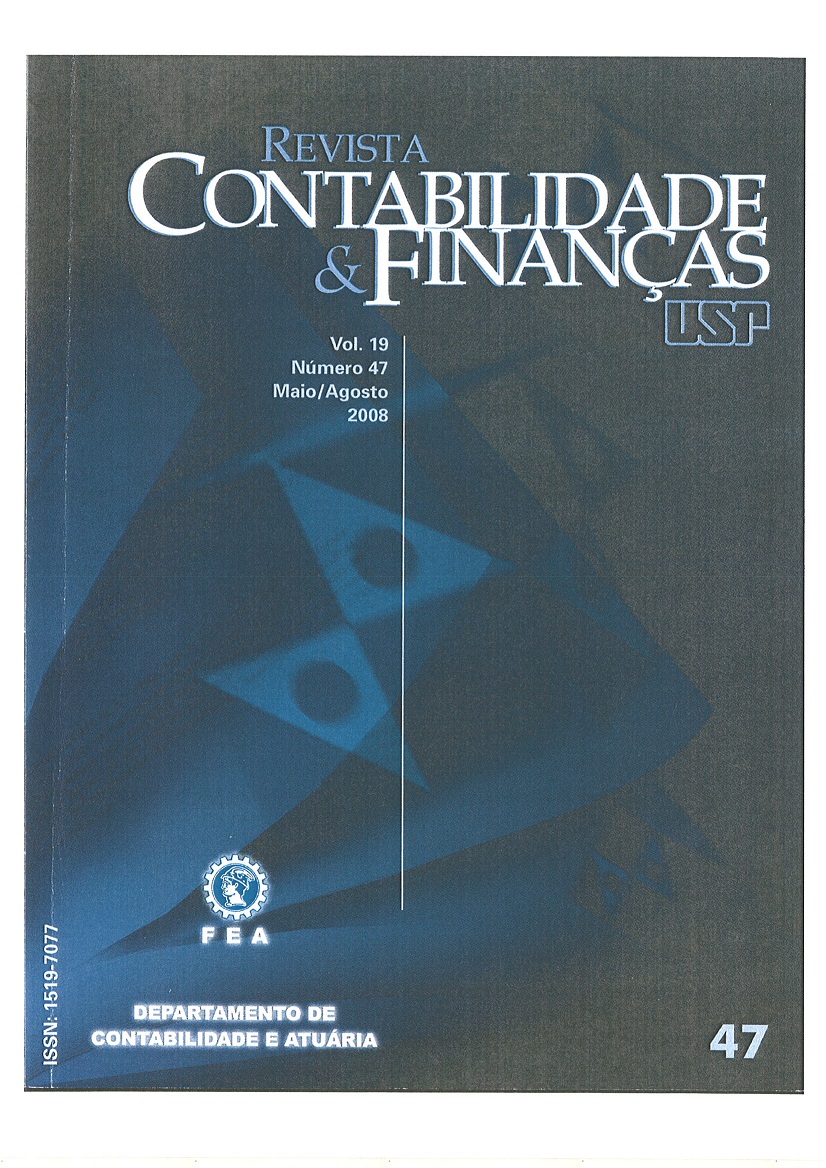Empirical analysis of valuation models in the brazilian environment: discounted cash flow versus Ohlson's model
DOI:
https://doi.org/10.1590/S1519-70772008000200004Keywords:
Valuation, Residual income valuation, Discounted cash flowAbstract
This paper uses equity analysts' forecasts for Brazilian firms to analyze whether there are significant differences between the results from the estimation of equity value when applying the discounted cash flow model (DCF) and the residual income model (OHLSON). The approach used in this research is pioneer, considering that previous papers comparing valuation models in Brazil used researchers' assumptions, based on public information, to implement the valuation models. However, the correct implementation of these models relies on market expectations (i.e. equity analysts) to calculate equity values. Additionally, we evaluate what model (DCF or OHLSON) better explains the Price-to-Book relation for future periods. Conclusions are: i) there are statistically significant differences for estimates of equity value when using discounted cash flow models and residual income models, and ii) Price-to-Book ratios calculated through discounted cash flow models have higher explanatory power for future Price-to-Book ratios than the estimates of this ratio using residual income valuation models.Downloads
Downloads
Published
Issue
Section
License
The content of the article(s) published in the RC&F are of the entire liability of the authors, including with regard to the truth, updating and accuracy of data and information. The authors shall assign the rights in advance to the Department of Accounts and Actuarial Sciences of the FEA/USP, which shall permit the publication of extracts or of the whole, with prior permission, provided that the source is cited (Creative Commons – CCBY).
RC&F shall not charge a fee for the submission of articles. The submission of articles to RC&F shall imply that the author(s) authorizes/authorize its publication without the payment of author’s rights.
The submission of articles shall authorize the RC&F to adjust the text of the article(s) to their publication formats and if necessary, to make spelling, grammar and regulatory changes.






